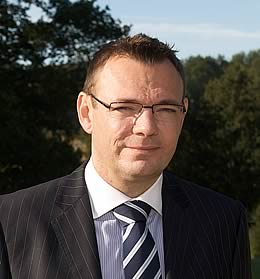 |
|||||||||
|
|||||||||||||||||||
|
|
Not Too Late to Protect Single Farm Payments Farmers who have not chosen to receive their Single Farm Payment in euros this year can still protect their support from currency movements.
“Farmers who have opted to receive their support in pounds rather than euros can still hedge their payments up until the 30th September, the date on which the SFP is set,” says Gareth Oakley, Agriculture Director at Lloyds TSB following the passing of the latest SFP application deadline (Monday the 17th May 2010). “Choosing to be paid in euros means you have to have a euro account, while if you have elected to receive payments in pounds then you’ll have to accept the pound/euro exchange rate on the 30th September.” “You can fix the SFP exchange rate at any time before the 30th September with Lloyds TSB for this year, next year and even the year after that. You’ll then be guaranteed those levels of payment in each year you have fixed for.” So if you lock the payments at a rate of, say, 85 pence to the euro and the pound strengthens to 83 pence when the rate is set on the 30th September you’ll receive a payment rate of 83 pence to the euro, but the bank will credit you the difference in sterling so that you receive 85 pence overall. However, if the pound weakens to 87 pence by the 30th September, you will receive a payment based on that rate, but the bank will debit the difference so that you receive an overall payment based on the 85 pence rate. Hedging currency will protect farmers from volatile exchange rates, adds Mr Oakley. In September 2008 the euro was worth 80 pence but by October 2009 it had risen to 93 pence; now it is around 85 pence. “Concern about the euro in the wake of the Greek financial crisis has seen the currency weaken against the dollar and the pound. Meanwhile, British political uncertainty is also having an impact.” Mr Oakley urges farmers to be aware that the overall level of payments is likely to fall over the next few years and they need to understand how this will impact on their businesses. This year will see another round of modulation - the redistribution of the SFP towards social and environmental schemes - peg back payments. “As in 2009 the English modulation rate will be 19%, while in Wales it will increase from 9.2% to 10.8% and will go from 13.5% to 14% in Scotland. That means that the SFP is worth considerably less than when it was launched in 2005, having a direct impact on farm incomes.” The current Single Farm Payment system is due to end in 2012 with the next round of Common Agricultural Policy reforms taking effect in 2013. European farming unions have urged policymakers to ensure the viability of farming as the market opens up to freer international trade. “It is clear that the general direction of CAP reform is away from supporting production towards more environmental protection. Risk management will become increasingly important as farmers fix the future costs of inputs and the price of produce. Fixed interest rates and currency hedging are also likely to be used more widely.” Mr Oakley says that farmers need the support of a bank that understands their needs and has a history of helping them develop their businesses. “Lloyds TSB’s network of more than 100 agricultural managers have the skills and experience to help farmers build their businesses in a more volatile, but exciting environment.”
|
||||||||||||||||||

|
|
||||||||||||||||||
| home | agri-services | pedigree
pen | news | dairy | beef | machinery property | organisations | site map |
|||||||||||||||||||
